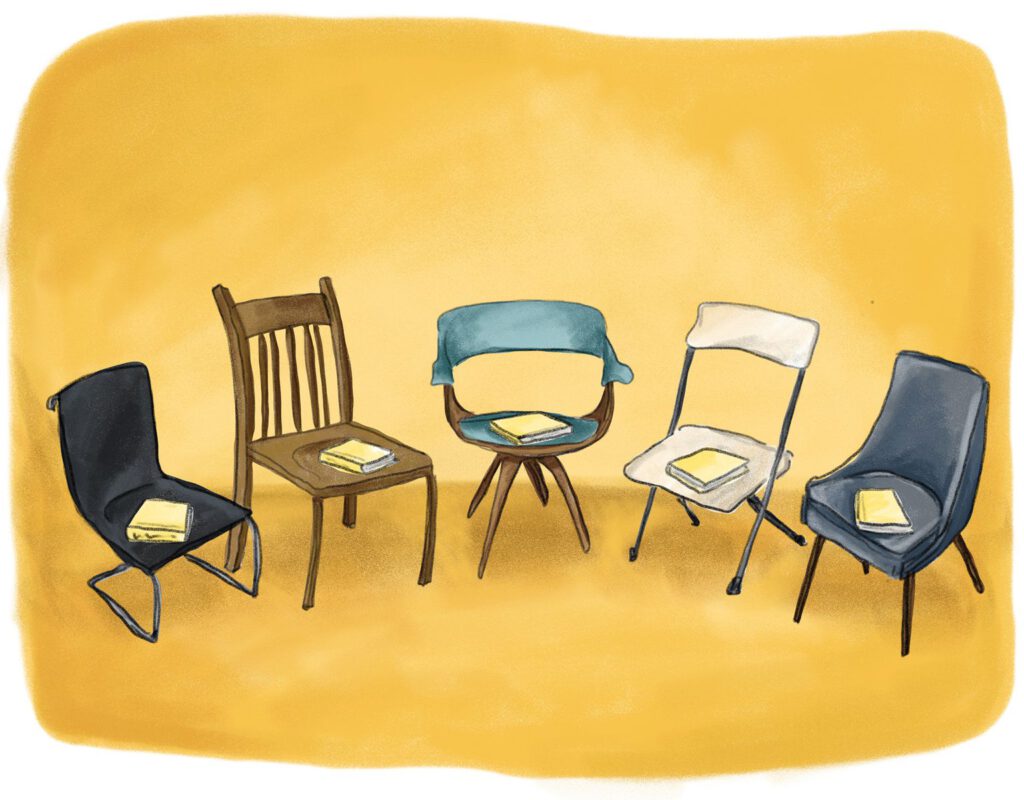In his book Pedagogy of the Oppressed, Paolo Friere says: “From the outset, the revolutionary educator’s efforts must coincide with those of the students to engage in critical thinking and the quest for mutual humanization. [The teacher’s] efforts must be imbued with a profound trust in people and their creative power. To achieve this, they must be partners of the students in their relations with them.” Mutual humanization may sound like an audacious goal. But it is, on an intimate scale, achievable through the application of the pedagogy laid out in this paper. This pedagogy is not focused on content, though the process promises deep content immersion and serves to foster personal connection to content in novel ways. Rather, this pedagogy is about the participants, the learners, as people sharing space within a classroom, a community, a planet. The hope is that this step-by-step approach to text study can help build new relationships and strengthen existing ones, creating a communal sense of connection and a deeper understanding of each participant’s humanity.
Pedagogy of Mutual Humanization

The In[HEIR]itance Project New York, NY

Jon Adam Ross.mp3
More PEDAGOGIES RESOURCES
A Pedagogy of the 48: Connecting Pirkei Avot, LIfe, and Learning
Dr. Gila Silverman
Director of Jewish Lifelong Learning
Siegel Lifelong Learning, Case Western Reserve University
This pedagogy invites participants to consider how the 48 different ways of “acquiring Torah” resonates with them
Access ResourceL’Shem Yichud: A Pedagogy For the Sake of Integration
Rabbi Jesse Paikin
Executive Director, Base
L’shem Yichud: For the Sake of Integration is a pedagogy based on an ancient practice of intention setting.
Access ResourceMachloket-i: A Personal, Professional Development Program
Edward Magiste
Educator
The Temple Tifereth Israel
Designed as a professional development strategy, this pedagogy of Machloket targets veteran educators asking to develop their teaching and ideas
Access ResourceLoving Goodness: A Pedagogy through Individuality and Belonging
Charles Herman
Former Executive Director & Founder
The Nesiya Institute
The pedagogy of Loving Goodness explores the tension between self-love and the love of the other
Access ResourceThe Pedagogy of Argument
Robbie Gringras
Co-Founder and Co-Director
For the Sake of Argument
The Pedagogy of Argument seeks to develop learners who are passionate about debates
Access ResourcePedagogy of Kinyan Torah: Helping Students Develop Their Own Interpretations of Torah
Ilana Gleicher Bloom
Founder of Mensch Academy at Mishkan Chicago,
Doctoral Candidate in Jewish Education, Coordinator of Pardes Experiential Educators Program
The pedagogy of Kinyan Torah helps educators support all learners to find their own unique Torah within themselves.
Access Resource